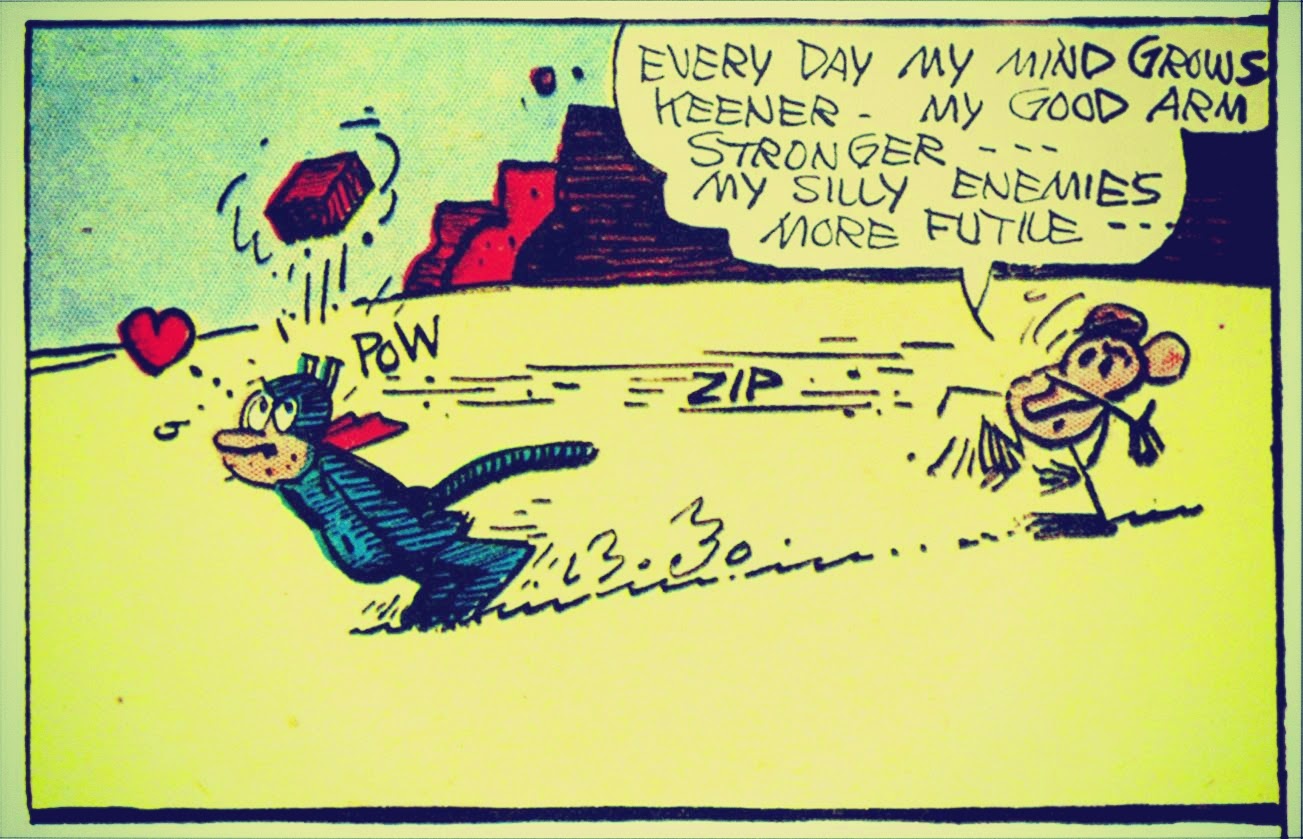Winsor McCay's Little Nemo, George Herriman's Krazy Kat, and Charles Schultz's Peanuts are examples of some of the pieces we went over this week.
Krazy Kat was definitely one of my favorites (Of the stories I had never heard of or seen prior to this lesson). I was very familiar with Little Nemo and have, since the beginning of my time, been in love with all of the Nemo comics. What I most enjoyed about the Krazy Kat stories is the dynamic of the cat, the mouse and the policeman. The carefree, simple-minded cat named Krazy is of indeterminate gender and is referred to as both "he" and "she", is in love with the grumpy mouse named Ignatz. Ignatz despises Krazy and is constantly scheming against the cat and always attempting to throw bricks at Krazy's head. At the end of most strips Ignatz is locked in the county jail.It was very reminiscent of the dynamic between Whiley Coyote and Roadrunner. I noticed in a lot of the older comics, police are heavily depicted as the general and easily relatable 'authority figure' and come up a lot in simplistic representations. Like, "if you mess up, the cops are gonna getcha". I found that even thought the stories in the strips were so lighthearted and silly, they represented a lot of greater, adult issues.




No comments:
Post a Comment